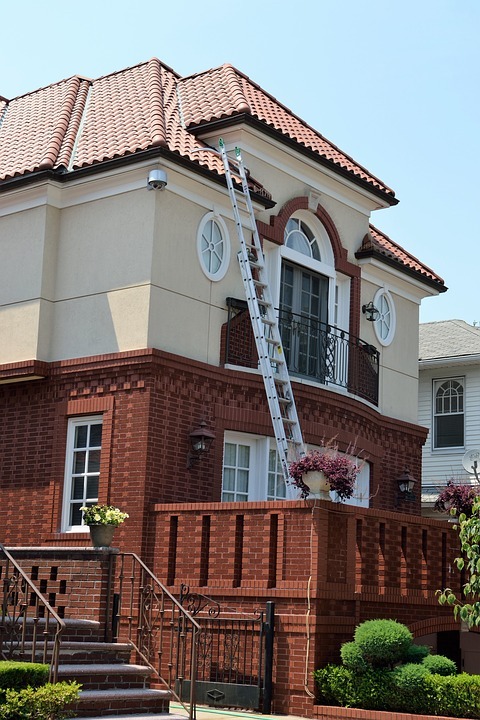Home inspections are part of almost every residential sale. Most first time buyers aren’t even aware of their purpose while seasoned buyers probably don’t as so much glance over the final report. The entire process of purchasing a home in an extensive one and the inspection portion should not be overlooked. So why do we get them and what is their purpose? Let us dive into what they are and decide if you should purchase one.
Spoiler Alert: Everyone should purchase a home inspection unless the owner already had one completed.
What is a Home Inspection
First of all, a home inspection doesn’t involve repairs in any form or fashion. It is entirely visual. An inspector in almost all cases will survey the entire dwelling (apartment, house, condo) and perimeter. In many states, the inspector will be licensed, while in others, it won’t be mandatory. But we’re recommending you visit the link to contact the experts when it comes to building defect inspection. Here are the items that they will be going over.
- Roofing
- Foundation
- Electrical system
- Plumbing
- Chimneys (if applicable)
- Attic
- Flooring, walls, and ceiling
- Heating and air conditioning systems
- Windows
Be sure and ask about termites!
Now after the inspection has been completed in its entirety, the inspector will prepare a full report. You won’t need to have a great understanding of how these processes are performed. But you will need to know which items if any will need to be repaired.
Why We Get Home Inspections
The only reason we get a home inspection is to make sure that nothing is wrong with the home. There might be huge underlying issues that could end up costing the buyer thousands of dollars in repairs. Inspections are super cheap when compared to homeownership. An inspection could save you from a terrible mistake.
Which brings us to the cost of one.
How Much Does the Inspection Cost
While all inspection prices will vary. We can give you some solid estimates. Remember that the final price will be based on several factors.
- Age of home
- Location
- Square footage of the structure
- Any additional structures on the property
- Mold and radon testing may cost more
Our experts can conclusively say that the cost of one will usually be in the range of $200-$600. Many inspectors will set base cost on the total square footage of the residence and move up from there.
Be sure and ask your inspector for a quote before you agree. This will prevent any big surprises. When you’re shopping around for an inspector, be sure and call 2 or 3 do get some pricing quotes. Now is a great time to ask any preliminary questions. Also be sure to check out great options like apartment.
What to Do During The Actual Inspection
Assuming you paid for the inspection, we advise that you follow 2 simple rules.
- Make sure you attend
- Don’t interrupt the inspector
You will have plenty of time to ask questions after the inspector has performed their tasks. Plus if you keep your ears and eyes open, the inspector may be able to give you a heads up on what to expect in the report. Many times they may convey orally what may be interpreted differently in the report.
Understanding the Report
The inspection process time will vary based on many factors. Expect it to take a few hours. After it has been completed, the inspector will usually email you a report.
If you have never seen an inspection report, prepare to be scared a little. Although you won’t understand all the terminology, a good inspector will prepare a comprehensive report. Homes will have quite a few underlying issues.
The point here is to determine if there are any issues that warrant repair.
- Send a copy of the inspection report to your realtor
- Your inspector should also set aside some time for you to ask questions. Browse through the report and make a list of any issues that require follow up questions.
If your realtor is seasoned, they can guide you through the process of understanding the report and what if anything can be done. You might even contact a vendor to come out for any estimates.
You likely will come to one of the three conclusions after the report has been issued.
1. The report doesn’t highlight any major damage. While there are certainly some potential things to keep your eyes on, nothing is so major that it requires immediate action.
Minor inspections could be:
- An aging roof
- Stucco issues
- A grading slope that leads to water rolling back towards the home
- Improper ventilation in the attic
2. There are some major issues that will need tending to before you proceed with the closing. You will need to determine who will pay for the repairs. The seller may be willing to come out of pocket or they may lower the price of the home to compensate for the cost of the repair.
Major repair issues could be:
- Presence of termites in the home
- Mold or water issues
3. Or there may be so many issues that you don’t feel comfortable owning the home. You could pull out of the buying process citing irreparable harm to the house.
Final Takeaways
- Make sure you have an inspection performed before you purchase the home
- The seller should be responsible for major repairs
- Attend the inspection as it is performed. And remember to keep quiet and save your questions till after the process is over.

